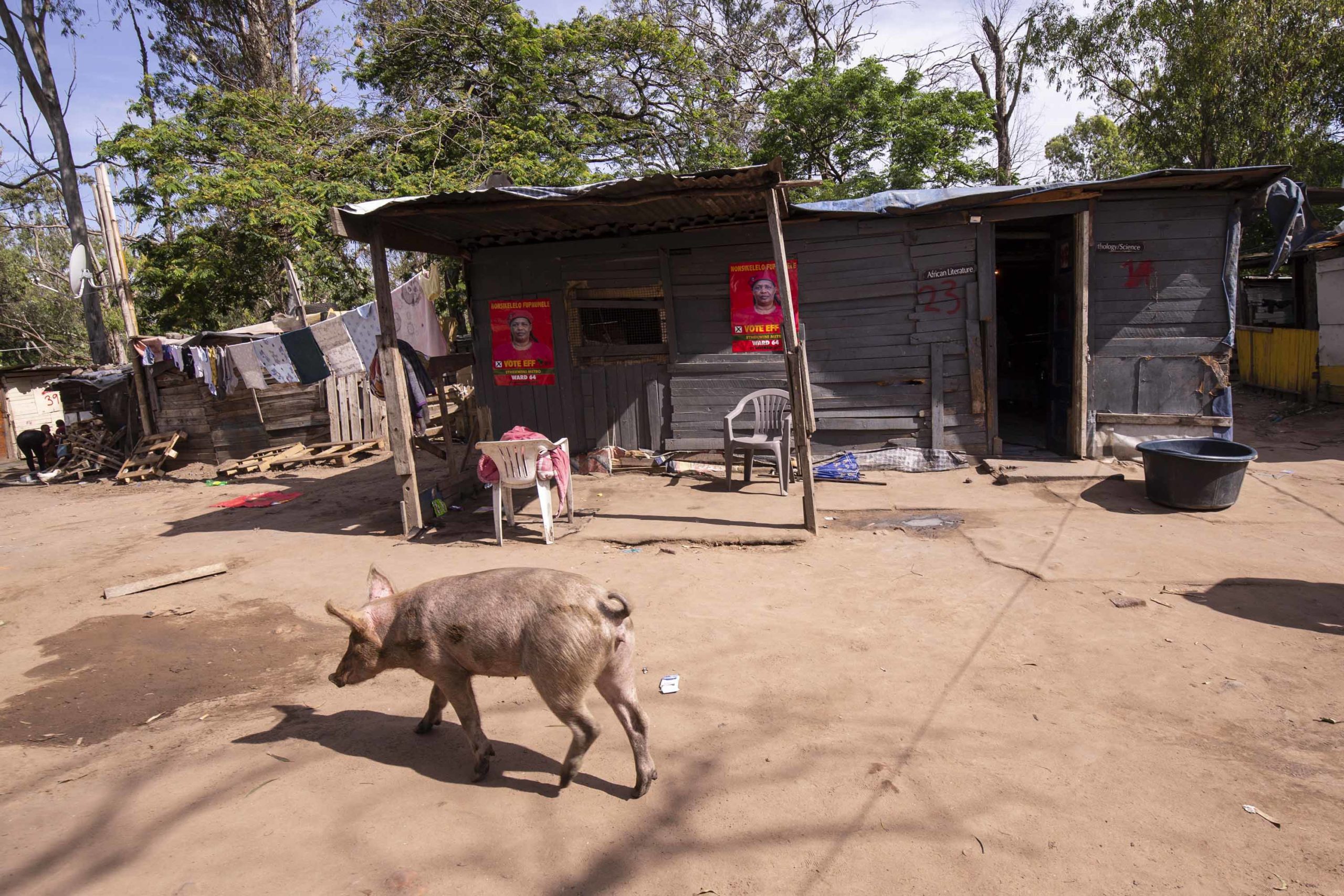Residents cling to a precarious life among the dead
In a long-abandoned cemetery in the south of Durban, shack dwellers felt they had little reason to vote for councillors who are so absent that they may as well be ghosts.
Author:
4 November 2021
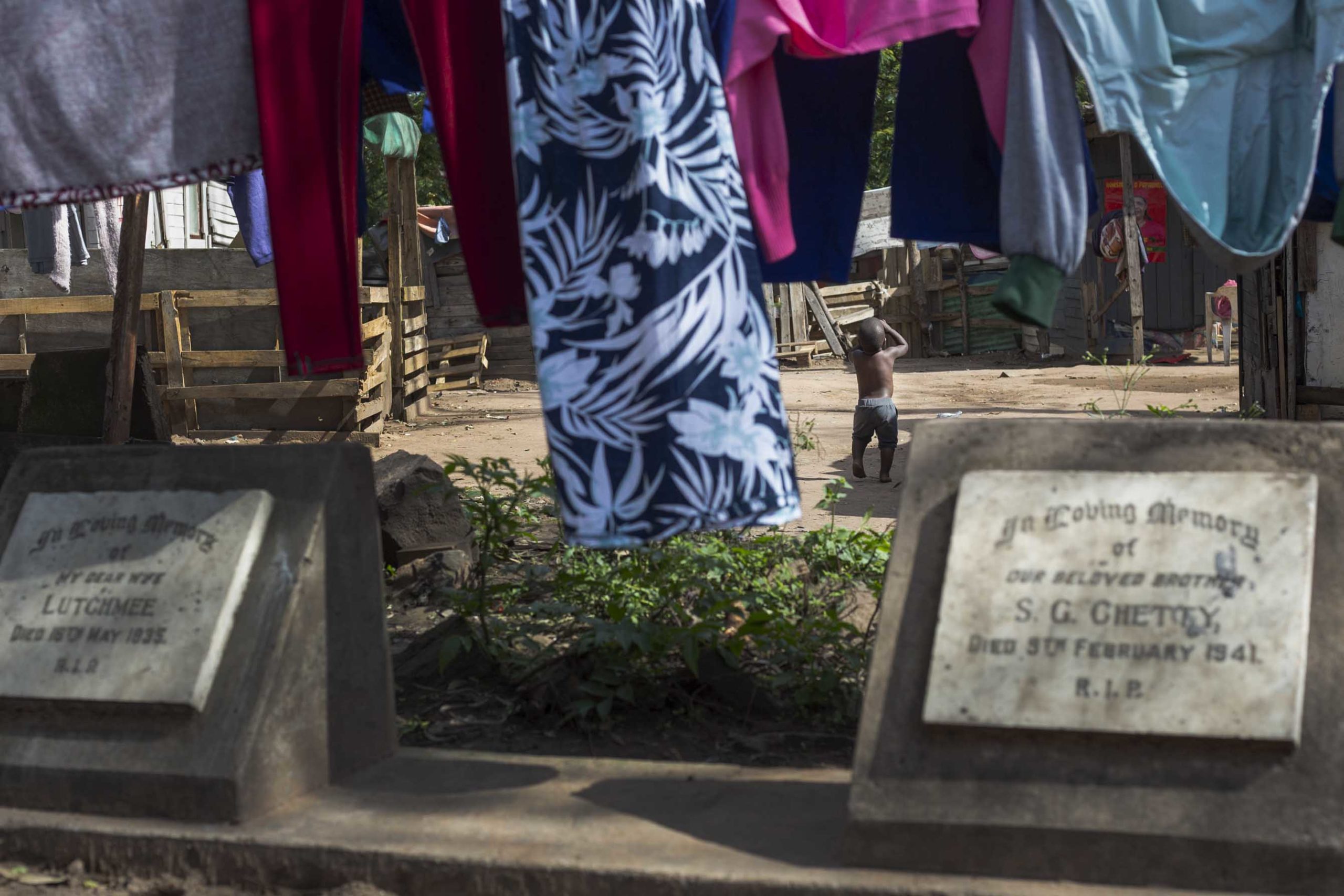
Nonkululeko Nceya, 36, was sitting under a tree in a disused cemetery in Durban, KwaZulu-Natal, on voting day, 1 November. She did not bother to vote despite the ANC hiring scores of minibus taxis to ferry voters from their homes to the voting station in her ward.
Nceya’s family is one of hundreds who, since around 2000, have built their shacks inside what was once the Seaview Hindu Cemetery, mostly used by Indian residents from Hillary, Bellair, Seaview and Mount Vernon, but eventually closed after the Group Areas Act forced families from the area.
The settlement in the cemetery is now known among its residents as eMathuneni, but many of them are embarrassed to call it home. Yet, they have no choice because they need to be close to the piece jobs they get in neighbouring suburbs as well as factories in Clairwood.
Near Nceya’s shack is a tombstone, but the writing has faded with the passing of time. Some of the graves and tombstones where her neighbours’ shacks stand are still clearly visible, and from these it seems that some of the dead in this section were buried in the 1920s to 1940s.
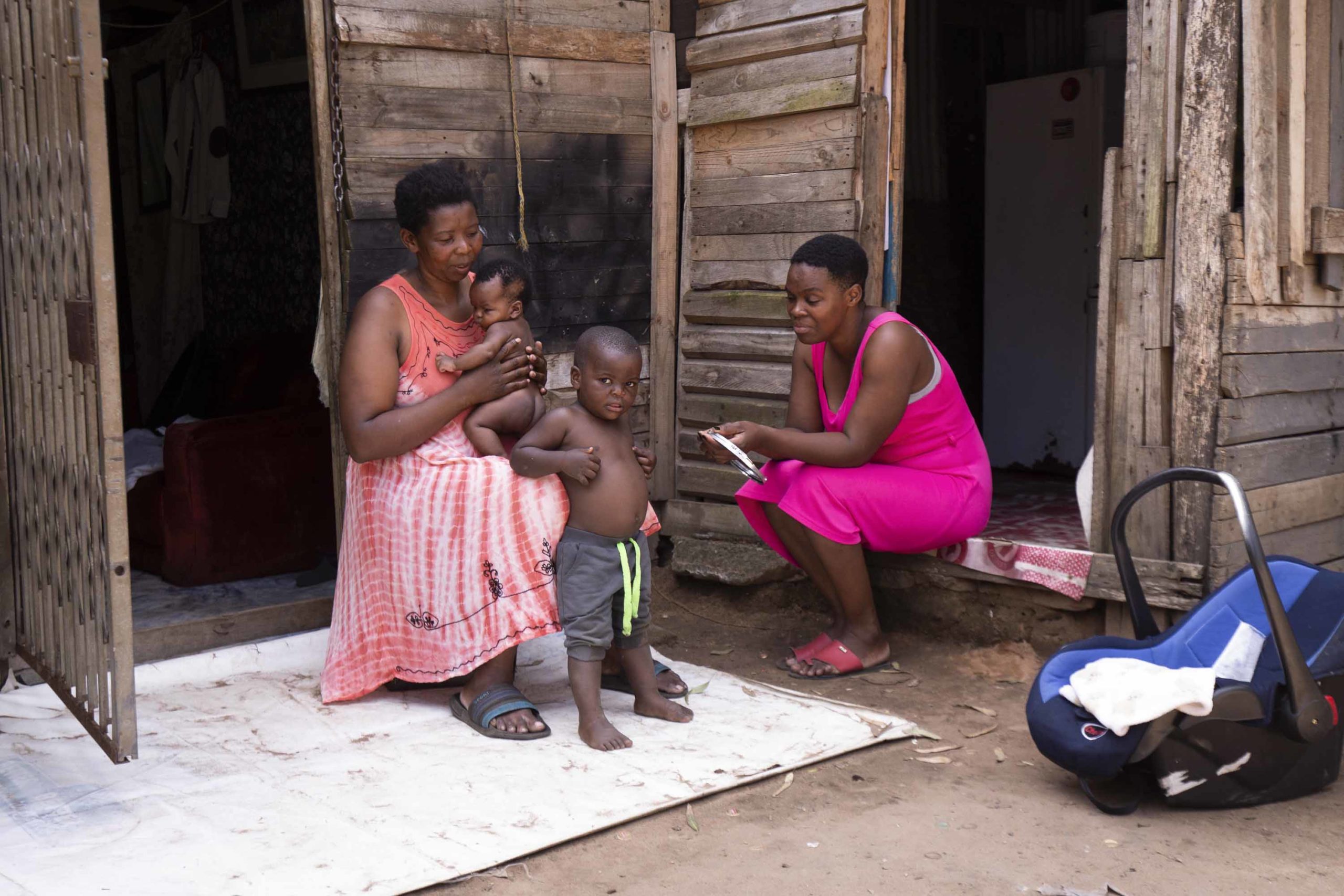
Nceya is unemployed and survives on the social grants she gets for her four children. She said she had no choice but to build her shack in the cemetery because she could not afford to pay rent elsewhere. She tried to build a home in other settlements in the city, but the eThekwini municipality broke down those shacks, resulting in the residents losing all their belongings.
“In 2015, when I came to live here, I knew that this was a graveyard, but there was nowhere else to go. I was scared of the ghosts at first, but as time went on I saw people were going about their lives without any care. Now I am also not scared.”
Nceya said she saw no point in voting. “Why should I vote so that the councillor can live a nice life while we have to endure the filth and smell of living here in the cemetery? People who must vote are those who are living in nice houses with electricity and water, and the people who have jobs.
“We don’t have jobs here. Jobs in the municipality are for pals, for girlfriends and for their families. They pay each other fat salaries for doing absolutely nothing. We get nothing,” she said.
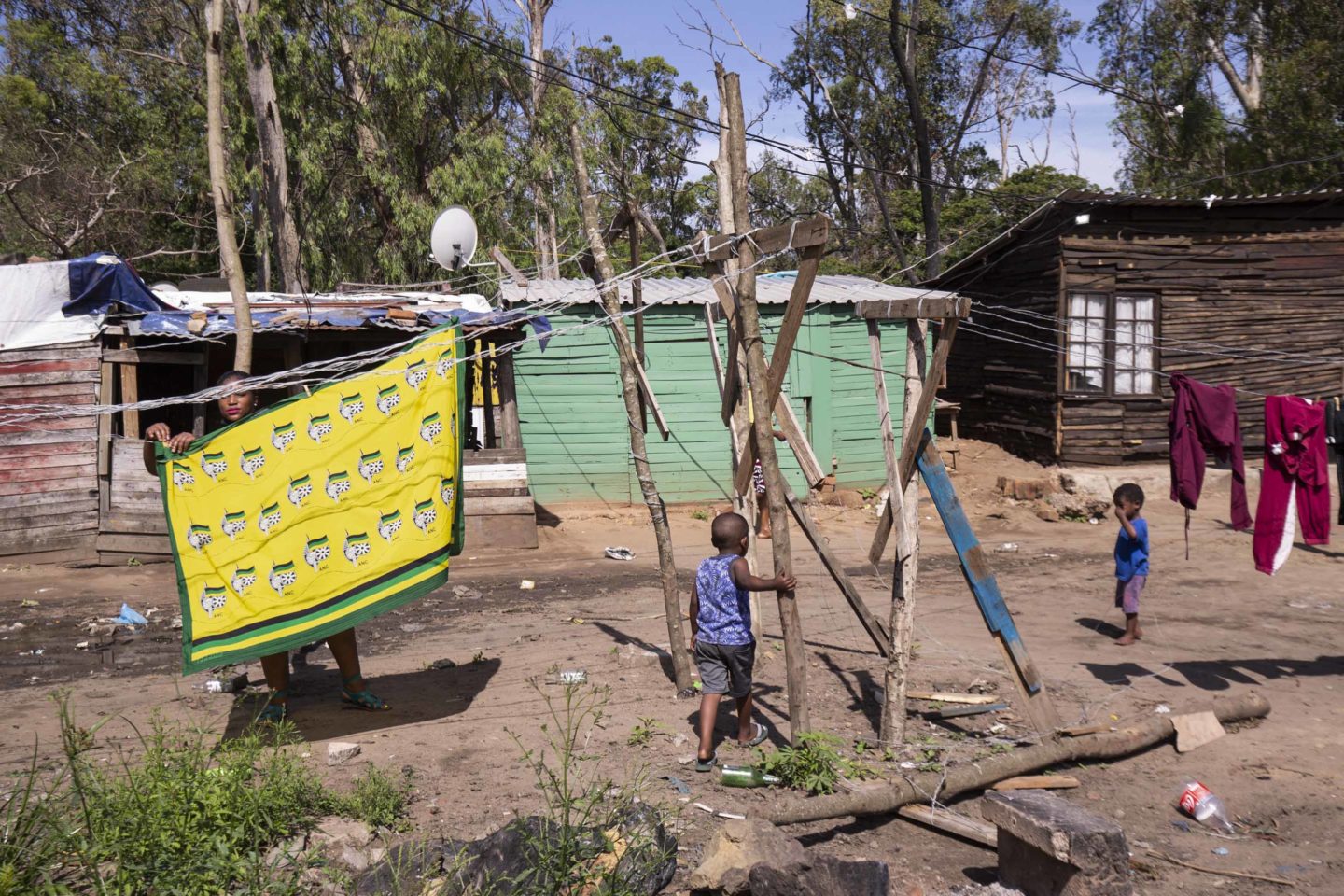
Still hoping
Many residents shared these sentiments, but some decided to cast their votes nonetheless. Mbulelo Khasi, 57, was readying to get into one of the taxis provided by the ANC. He has been living in the cemetery for two decades.
“I came here from the Eastern Cape to look for work. I am unemployed. I used to get piece jobs working in building sites or cleaning gardens, but even these jobs have dried up. I am lucky if I get one garden-cleaning job a month. But I am going to vote because I still have hope that my life, and that of my family, can change for the better,” said Khasi.
Nqobile Mjakuja, 20, Anelisiwe Matiwane, 21, and Ncebakazi Gamede, 20, were eagerly awaiting the taxi that would take them to vote for the first time.
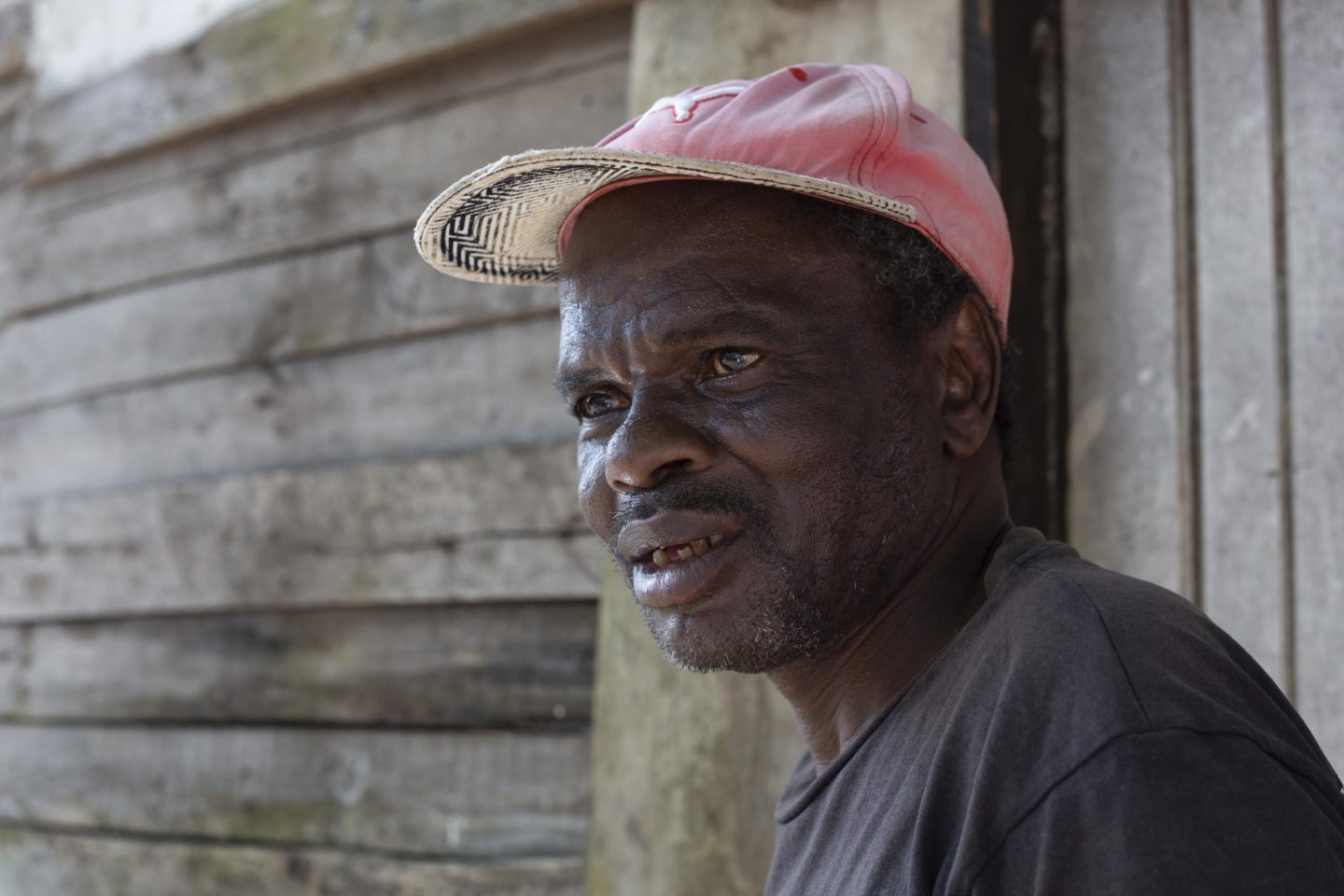
“We have to vote because we want our lives to change. We [want to be] able to get free education so that we can access good jobs and take our families away from this place,” said Mjakuja.
But Busi Zondi, 38, who lives with her three children and her common-law husband, was staying away from the polls. “Our homes here are sinking because this is a graveyard, after all. We want houses, but for now this is all we have. Our government doesn’t care for us. We are all on our own.
“We have been voting for many years but our lives don’t change. We don’t have services here, there are no clean toilets or showering facilities, we only have one communal tap. Life is tough down here,” she said.
Reality stinks
Eunice Gebashe, 58, also has an old grave with a tombstone in front of the two-room shack she shares with her four children and three grandchildren. But this is the least of her worries. Behind her is a pigsty with more than a dozen pigs of all ages. It is owned by a neighbour who threatens anyone suggesting that the pigsty must be moved, and those in the nearby shacks are left having to endure the foul smell.
Gebashe’s family is supported by child grants and the money she makes as a traditional healer. Her two-month-old granddaughter, Lundanele, recently died after suffering from diarrhoea and she strongly suspects the pigsty and its unhygienic conditions were to blame.
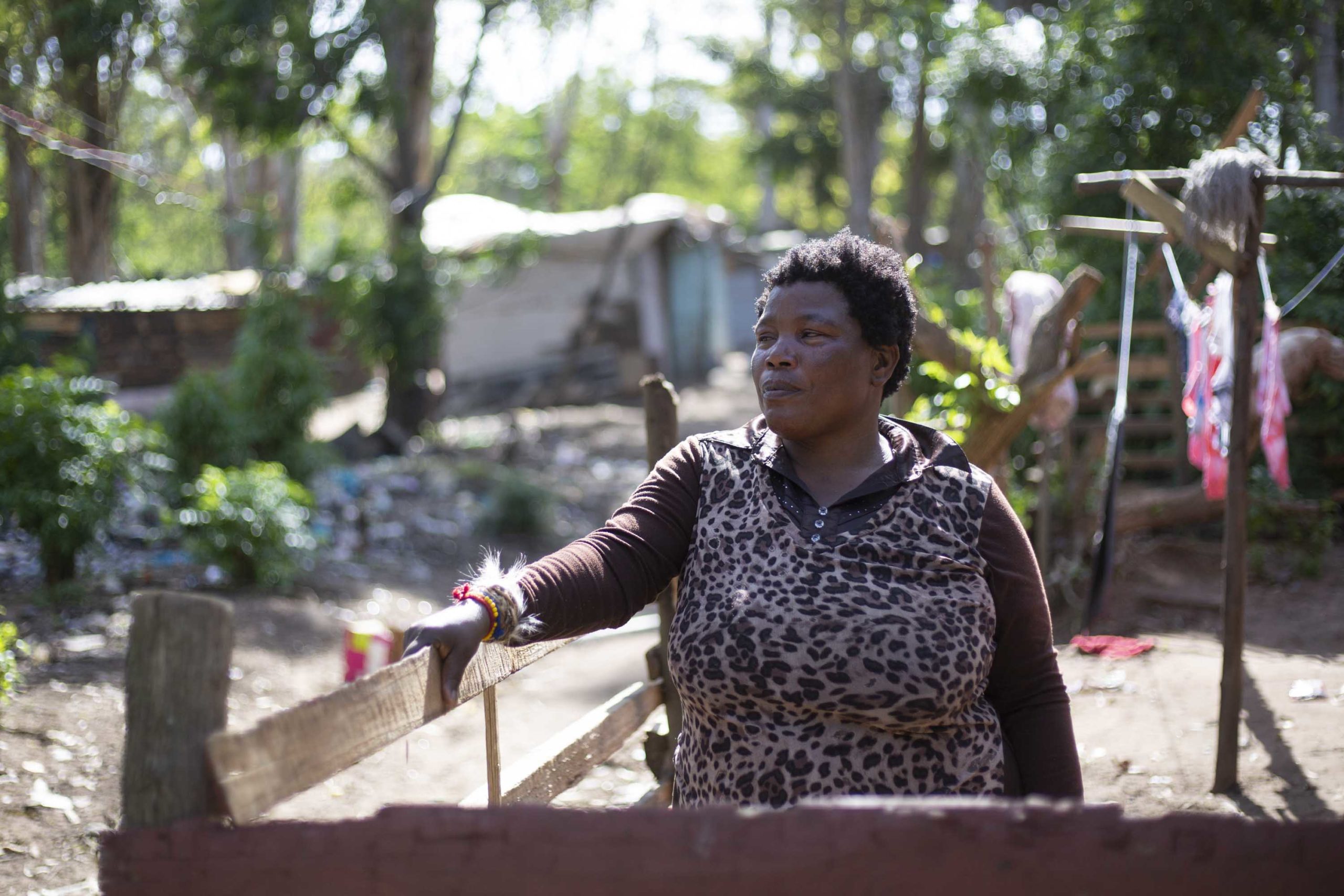
“My granddaughter only suffered for two days and then she was gone,” said Gebashe. “She is still lying in the government mortuary as we speak. I don’t have the money to bury her yet because neither myself nor my daughter [Lundanele’s mother] are working,” she said.
Pepe Dass, chairperson of the South African Cemeteries Association and a manager in the eThekwini municipality’s special services department, said the human settlement in Seaview cemetery is not a unique phenomenon.
“Humans have been living on earth for thousands of years and there are many cities and residential areas that have been built on historical cemeteries where people had been buried, but there are no records of these cemeteries,” he said.
